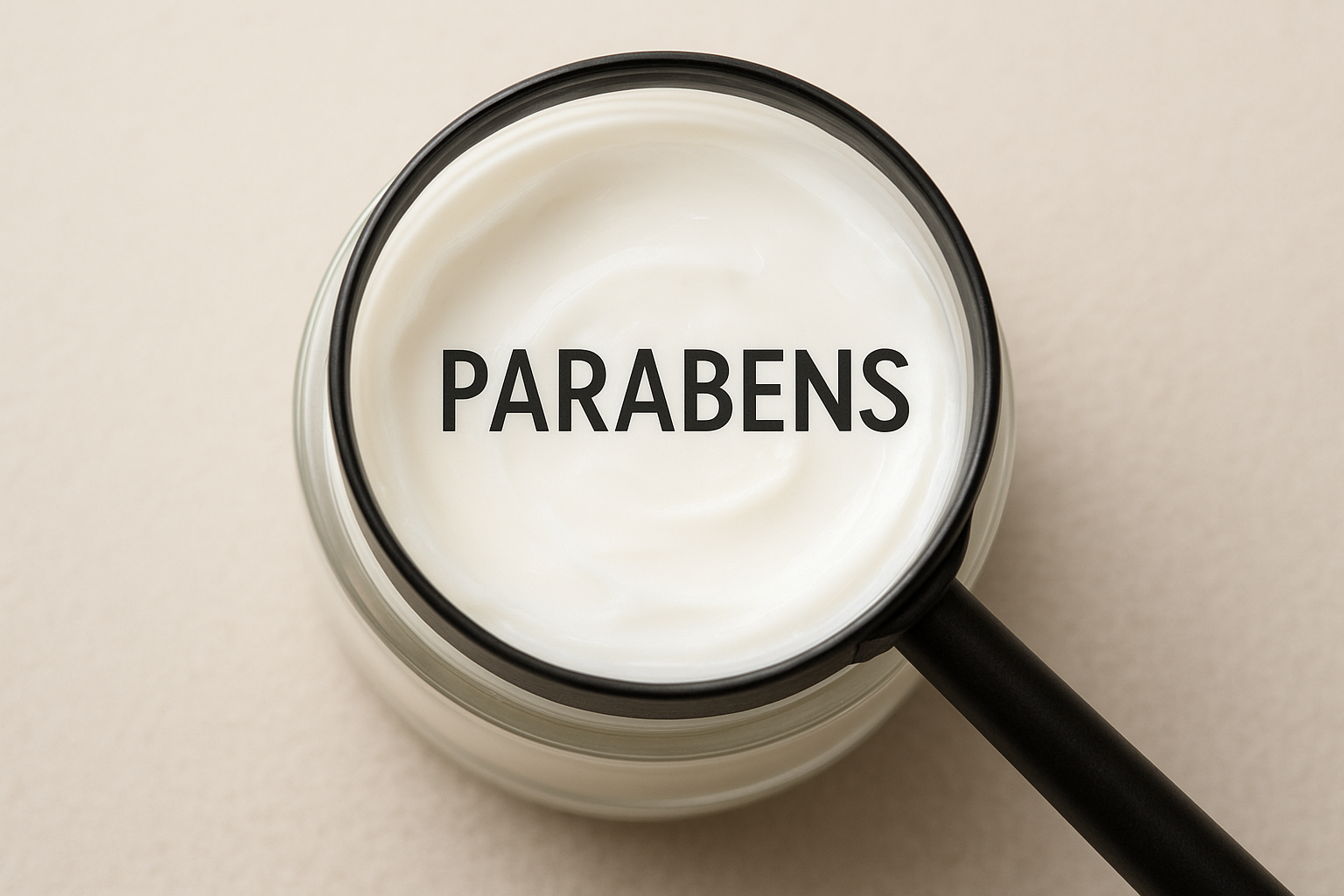
All Sol14 skincare products are paraben free. But what does this really mean?
Quick article summary
| Pros | Cons/Concerns |
| + Very effective at preventing bacteria and mold | – Can weakly mimic the hormone estrogen |
| + Have a long history of safe use in millions of products | – Were found in breast cancer tissue, but no causal link was ever proven |
| + Low rate of causing skin allergies compared to some alternatives | – Some specific types are restricted in the EU as a precaution |
What are Parabens?
In simple terms, parabens are preservatives. They are a family of chemicals that are used to prevent the growth of harmful bacteria, mold, and yeast in products. This keeps products safe to use and gives them a longer shelf life. Think of them like the preservatives in food that stop it from spoiling quickly on the shelf. The most common types you might see on an ingredient list are:
- Methylparaben
- Propylparaben
- Butylparaben
- Ethylparaben
Why Are They Used in Skin Creams and Cosmetics?
Your bathroom is often a warm and humid environment, which is the perfect breeding ground for microbes. Every time you dip your fingers into a jar of face cream or use a lotion, you can introduce bacteria. And so, parabens are used for two primary reasons:
- Product Safety: They kill those microbes/microorganisms that could contaminate your cosmetics. A contaminated product could cause skin infections, rashes, or other health issues.
- Product Stability: They ensure the product remains unchanged and effective from the day that you buy it until it’s finished. Without a preservative, a cream could go bad in just a few days or weeks.
Because of this, parabens have been used in numerous products since the 1920s for their effectiveness and because they are generally inexpensive.
So what’s the concern then?
The concern around parabens began to grow after a 2004 UK study found traces of parabens in breast cancer tumors. This led to questions about a possible link between parabens and cancer.
The main scientific concern is that parabens have been shown to weakly mimic the hormone estrogen in the human body. High estrogen levels are known to be a factor in the development of some types of breast cancer. This property is known as “endocrine disruption.”
Please note these two key points:
- The 2004 UK study did not prove that parabens caused the cancer. The fact is, the study only showed that they were present in the tissue. Key point – no definitive correlation.
- The estrogen-mimicking effect of parabens is considered to be extremely weak. Natural estrogen produced by your own body and estrogen-like chemicals from plants (like soy) are many thousands of times stronger. Key point – your body produced estrogen is 1000s of times stronger.
What about data from scientists and regulators?
Here are a few conclusions from experts who review the safety of cosmetic ingredients:
- US Food and Drug Administration: The FDA continues to review the data on parabens. Their current official position is that there is not enough scientific evidence to show that parabens, at the low levels used in cosmetics, are harmful to human health. They state, “At this time, we do not have information showing that parabens as they are used in cosmetics have an effect on human health.”
- Cosmetic Ingredient Review (CIR): The CIR is an independent panel of scientific and medical experts that assesses the safety of cosmetic ingredients in the United States. They have reviewed parabens multiple times and have consistently concluded that they are safe to use in cosmetics at the current established levels.
- The European Commission’s Scientific Committee on Consumer Safety (SCCS): The European Union has some of the strictest cosmetic regulations in the world. They have concluded that the most common parabens (methylparaben and ethylparaben) are safe at the maximum allowed concentrations. They have, however, restricted the concentration limits for propylparaben and butylparaben and have banned a few less common types of parabens altogether as a precaution.
What’s Sol14’s stance on parabens?
Even though there are numerous benefits to using parabens in products, Sol14 has opted not to use parabens in any of their products. Why? We want to ensure that all of our products contain the least amount of ingredients and still be the most effective across all skin types. We have also opted to use alternative, more natural ingredients to preserve our products.
